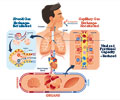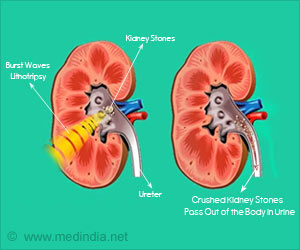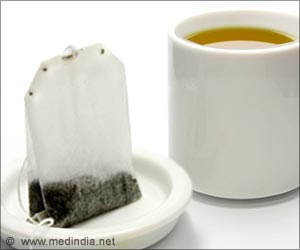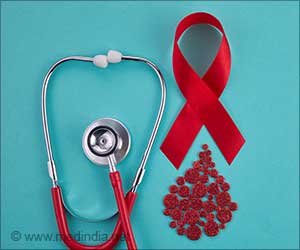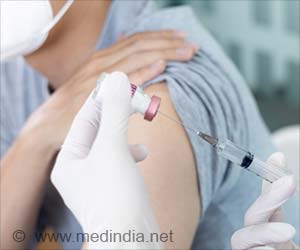There is a possibility of somatic DNA alterations in astronauts due to spaceflight.
Highlights:
- Spaceflight-related mutations that can increase an individual’s lifelong risk of cancer and heart disease are more likely to affect astronauts
- This demonstrates the importance of regular blood tests for astronauts to monitor their health throughout their missions and after retirement
Astronauts are more likely to experience mutations connected to spaceflight that can raise their lifetime risk of cancer and heart disease.
National Aeronautics and Space Administration (NASA) astronauts who flew space shuttle missions between 1998 and 2001 provided blood samples to a research team at the Icahn School of Medicine at Mount Sinai. The blood-forming system (hematopoietic stem cells) of all 14 astronauts was under study. Researchers found somatic DNA alterations. Their research, published in the August issue of
Nature Communications Biology, raises the possibility that these mutations may be due to spaceflight. It highlights the significance of routine blood testing for astronauts throughout their careers and after retirement to keep an eye on their health.
Health Risks of Spaceflights, Deep Space Exploration
Somatic mutations cannot be passed on to kids because they happen after conception and in cells other than sperm or egg cells. The overrepresentation of blood cells produced from a single clone, or clonal hematopoiesis (CH), was a characteristic of the mutations found in this study. These mutations can result from cancer chemotherapy or radiation therapy. They are frequently brought on by environmental factors such as exposure to ultraviolet radiation or certain chemicals. CH has few tell-tale signs or symptoms. Many patients are discovered through genetic testing of their blood for other disorders. Although CH is not always a sign of illness, it is linked to an increased risk of blood cancer and cardiovascular disease.
“Astronauts work in an extreme environment where many factors can result in somatic mutations, most importantly space radiation, which means there is a risk that these mutations could develop into clonal hematopoiesis. Given the growing interest in both commercial spaceflights and deep space exploration, and the potential health risks of exposure to various harmful factors that are associated with repeated or long-duration exploration space missions, such as a trip to Mars, we decided to explore, retrospectively, a somatic mutation in the cohort of 14 astronauts,” said the study’s lead author David Goukassian, MD, Professor of Medicine (Cardiology) with the Cardiovascular Research Institute at Icahn Mount Sinai.
Astronauts who performed relatively brief (median 12 days) space shuttle flights between 1998 and 2001 made up the study subjects. Six of the 14 were on their first mission, the median age was about 42, and almost 85% were men. White blood cells were collected from the astronauts three days after landing; complete blood samples were taken 10 days prior to the journey and on the day of landing. The samples were kept for around 20 years at -80º C.
Researchers discovered 34 mutations in 17 CH-driver genes using DNA sequencing and in-depth bioinformatics studies. The most often altered genes were TP53, which makes a protein that suppresses tumor growth, and DNMT3A, which is typically mutated in acute myeloid leukemia. However, the somatic mutation frequency in the genes that the researchers examined was less than 2%, which is the technical cut-off for somatic mutations in hematopoietic stem cells to be regarded as clonal hematopoiesis with uncertain potential (CHIP). CHIP is more prevalent in older people and is linked to a higher risk of cardiovascular disease as well as hematologic and solid cancers.
“Although the clonal hematopoiesis we observed was of relatively small size, the fact that we observed these mutations was surprising given the relatively young age and health of these astronauts. The presence of these mutations does not necessarily mean that the astronauts will develop cardiovascular disease or cancer, but there is the risk that, over time, this could happen through ongoing and prolonged exposure to the extreme environment of deep space,” Dr Goukassian said. “Through this study, we have shown that we can determine the individual susceptibility of astronauts to develop disease related to their work without any implications that can affect their ability to do their work. Indeed, our studies demonstrate the importance of early and ongoing screening to assess that susceptibility. Our recommendation is that NASA, and its medical team, screen astronauts for somatic mutations and possible clonal expansion, or regression, every three to five years, and, not less importantly, well into their retirement years when somatic mutations may expand clonally and become CHIP.”
Are Exosomes health biomarkers?
Exosomes are tiny, lipid-layered microscopic vesicles that form inside human body cells and are then released into the blood circulation, carrying information from their cells of origin that reflects their intercellular condition. The team's research builds on earlier investigations that used the same samples to identify predictive biomarkers in exosomes. This property of exosomes may make them excellent biomarkers of health and/or disease and enable them to transmit data between cells throughout the body over considerable distances. The exosomes from astronauts that the researchers used to treat human heart cells had an impact on the biology of the vitamin D receptor, which is crucial for the health of the heart, skeletal muscles, and bones. Additionally, they evaluated how space travel will affect mitochondrial DNA, which makes up the genome of the tiny organelles that power cells. Researchers discovered that astronauts' blood had two to 350 times the average quantity of cell-free mitochondrial DNA circulating, which could cause oxidative stress and inflammation in other parts of the body.
“Through these studies, we have demonstrated the potential to assess the health risk of space flight among astronauts. What is important now is to conduct longitudinal retrospective and well-controlled prospective studies involving many astronauts to see how that risk evolves based on continued exposure and then compare that data against their clinical symptoms, imaging, and lab results. This will enable us to make informed predictions as to which individuals are more likely to develop a disease based on the phenomena we are seeing and open the door to individualized precision medicine approaches to early intervention and prevention,” said Dr Goukassian.
Source-Medindia


